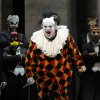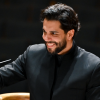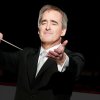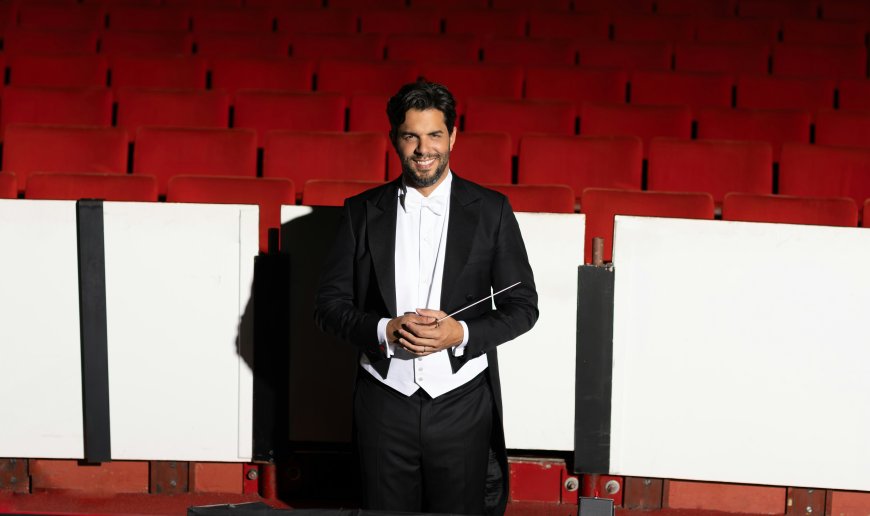
The Los Angeles Philharmonic and the San Francisco Symphony may still be searching for their next music directors, but another major California institution has now filled that all-important position.
Venezuelan-born conductor Domingo Hindoyan will assume the role of music director of Los Angeles Opera in July 2026, succeeding James Conlon. Hindoyan has served as chief conductor of the Royal Liverpool Philharmonic Orchestra since 2021, and he plans to continue in that post as he takes up his new job.
His LA Opera appointment, with an initial term of five years, is “an honor, a big challenge, and a source of great pride,” Hindoyan said in a recent interview with SF Classical Voice. It is also the culmination of an amazing journey for the rising conductor, which he explained began 20 years ago with an impromptu meeting with the legendary Daniel Barenboim.
This conversation has been edited for concision and clarity.
How were you initially approached about this position in Los Angeles?
I got an invitation to come and conduct Romeo and Juliet last year. I felt very comfortable in the city, and working with the orchestra was very smooth, very fluent. Things felt relaxed, and yet everyone held themselves to a very high standard.
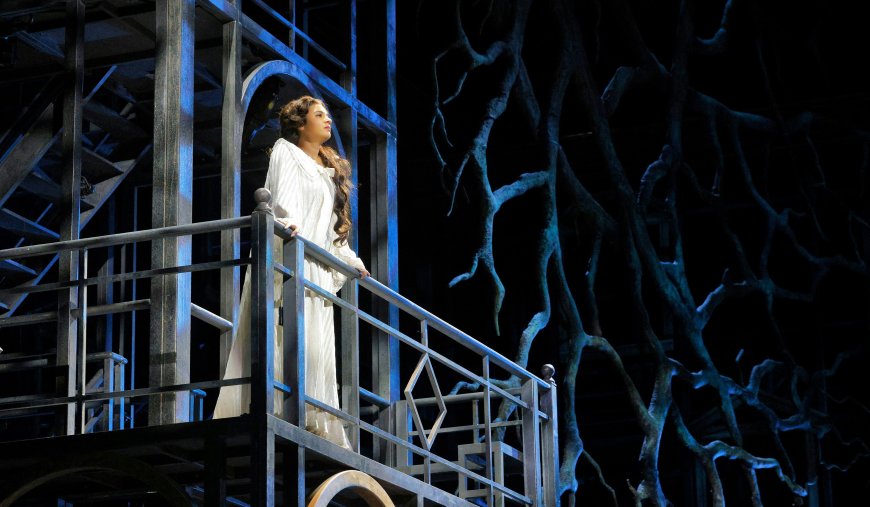
Did you know this was essentially a job audition?
I knew it was a possibility. I was informed they were searching for a conductor. But there wasn’t any special pressure. I just did what I do in any opera house.
I remember I had a concert in Liverpool the Sunday [before], and very early morning the next day, I took a flight to Paris and then another to Los Angeles. I landed, and I took a taxi, dropped off my suitcases, and went immediately to an orchestra read. It was crazy.
That sounds like a template for your life going forward, as you juggle jobs in Liverpool and Los Angeles and your home life in Geneva, Switzerland, where you and your wife, soprano Sonya Yoncheva, are raising two young children.
My only hesitation [about taking the job at LA Opera] was the distance from Europe. But I have a close friend who has been doing this for 17 years — Gustavo Dudamel — so I know it can work.
How long is your Liverpool contract?
It extends to 2028. I will have both for two seasons, and a renewal in Liverpool is possible. I don’t see a problem with that. But we may relocate from Geneva. We need to do what’s best for our family.
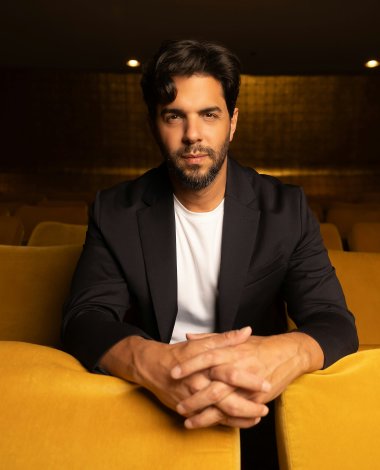
How many operas do you expect to conduct in Los Angeles each year?
At least three per season — similar to Maestro Conlon. It might be a little less the first season since my calendar is already busy.
Do you have a vision of where you would like to take the company over the next five years — what you would like to continue, what would you like to add or change?
First, I want to respect and honor what has been done up until now. From there, I want to find my own perspective. I also want to take some risks in both the choice of repertoire and the staging. I want to connect with the city and serve the art form as best we can. As much as possible, I want to both bring the people to the stage and bring the stage to the people.
What are your thoughts on commissioning new work?
I love it. I do it already with my orchestra in Liverpool. I recently commissioned and premiered a work by Roberto Sierra. I feel it’s very important. I’d like to commission composers [for LA Opera] who identify with the city and with what we are doing.
You were born and raised in Caracas, Venezuela, where your mother was an attorney and your father a violinist with the main symphony orchestra. Was it a given that you would get a music education?
Yes. I was given a violin when I was 5 or 6. I was part of [Venezuela’s famed music education program] El Sistema. School went until 1 p.m., after which I went to music school. That was my daily food: music, music, music. At first, it was just a way to have fun, but when I got to be a teenager, [I became more serious], practicing the violin for three to five hours per day and traveling to master classes. I had big ambitions, but nobody forced me. It was totally natural.
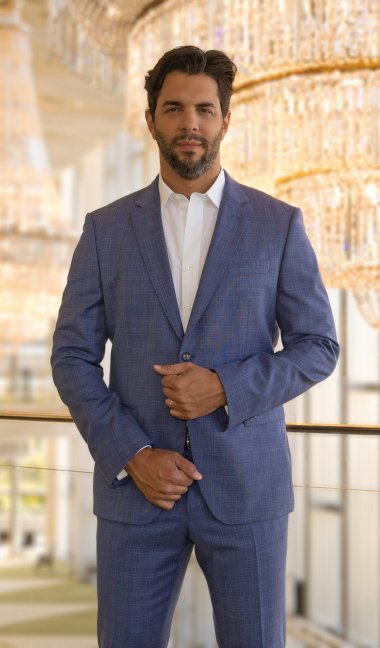
You moved to Geneva at age 20 to study the violin, but at 24 you switched gears and began studying conducting. When did you start thinking you might want to move to the podium?
At age 14, I was concertmaster of my youth orchestra, and the conductor asked me to conduct [Edvard] Grieg’s Peer Gynt Suite. I knew then I was interested in conducting. I played under some wonderful conductors, including [Charles] Dutoit and [Claudio] Abbado. I was always watching them and noticing what they did and why.
Because of my father, I was lucky to have many scores at home. I learned how to read them at a very early age on my own. I knew one had to be an accomplished musician to become a conductor, so I worked very hard on the violin. Ultimately, the violin opened many doors for me. Thanks to the violin, I met Daniel Barenboim.
From what I understand, that meeting literally changed your life. How did it unfold?
It was 2005. I was 25. He visited the Lucerne Festival with the Chicago Symphony. I was in the area — I had some friends there — so I decided to attend the rehearsal. Afterward, I was introduced to Barenboim. He asked me about my roots. I mentioned my father is Venezuelan and my mother, who has an Armenian background, is from Syria.
I had my violin with me, and at one point, he asked me, “Do you play well?” I told him, “Maestro, I can’t answer that question. But I could come to Berlin and audition for you.” He said, “No, just take out the violin and play something.” So I took out the violin and played a few pages of the Tchaikovsky Violin Concerto.
He said, “Very good. Would you like to join the West-Eastern Divan Orchestra?’ [Barenboim’s ensemble made up of young musicians from all over the Middle East]. I said, “But I’m Venezuelan.” “Yes, but your mother is Syrian.” I joined the orchestra the next year. This completely changed my life.
In 2013 [while still in the orchestra], I told him I was a conductor. He told me there was a position open in Berlin [where Barenboim led the Berlin State Opera], but I would have to audition for the orchestra members. I did, and he offered me the job. All of a sudden, I was conducting.
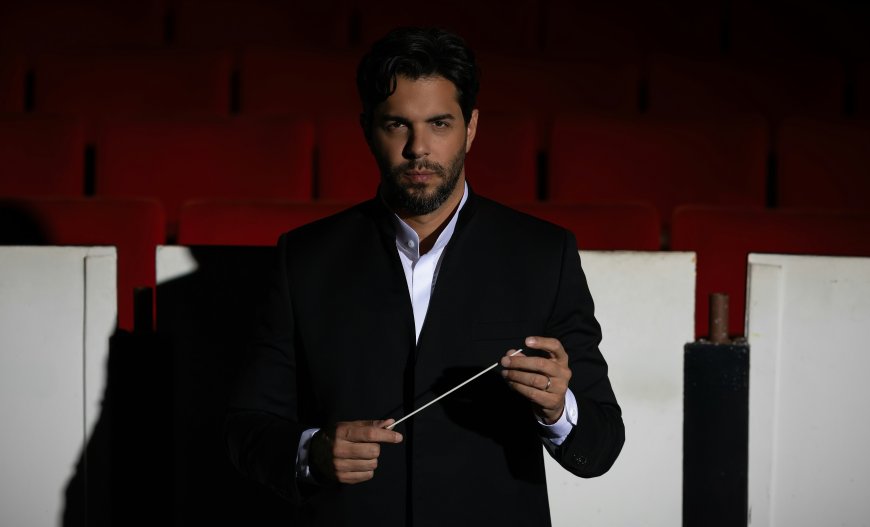
What’s your approach to getting the best possible performance from an orchestra?
I try to convince them with knowledge. I try to be 300 percent prepared. I think that when the conductor knows what he or she wants, the situation is easy because the authority is quite natural.
Last year, you and your wife did a joint interview in which you addressed the fact you don’t perform together very frequently. You decided early on to pursue separate careers rather than be some sort of celebrity couple. I understand that balance also works well with two kids at home. Given all that, are we likely to hear Yoncheva in Los Angeles over the next couple of years?
Absolutely. She was here 11 or 12 years ago with the LA Phil. I think it’s time she comes back, and she wants to. We’ll have to find the right time in her busy schedule.


